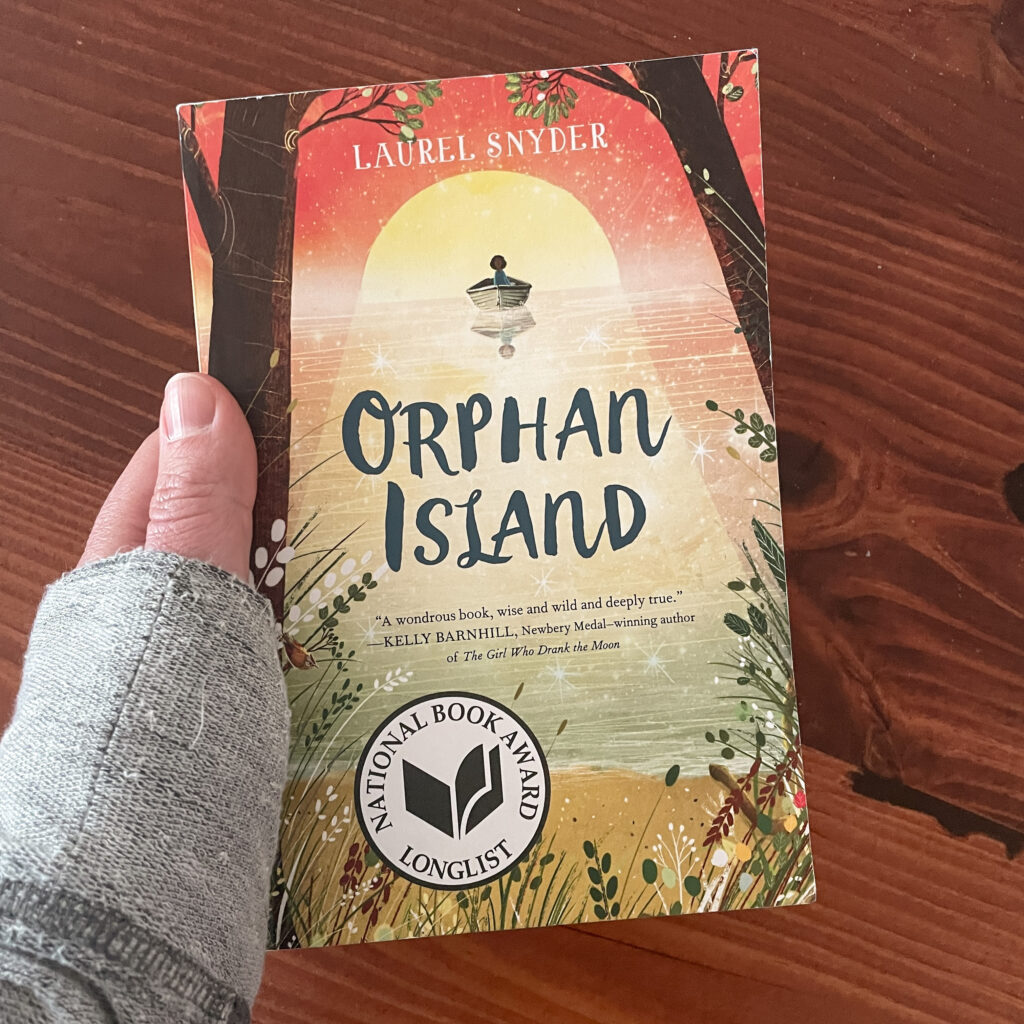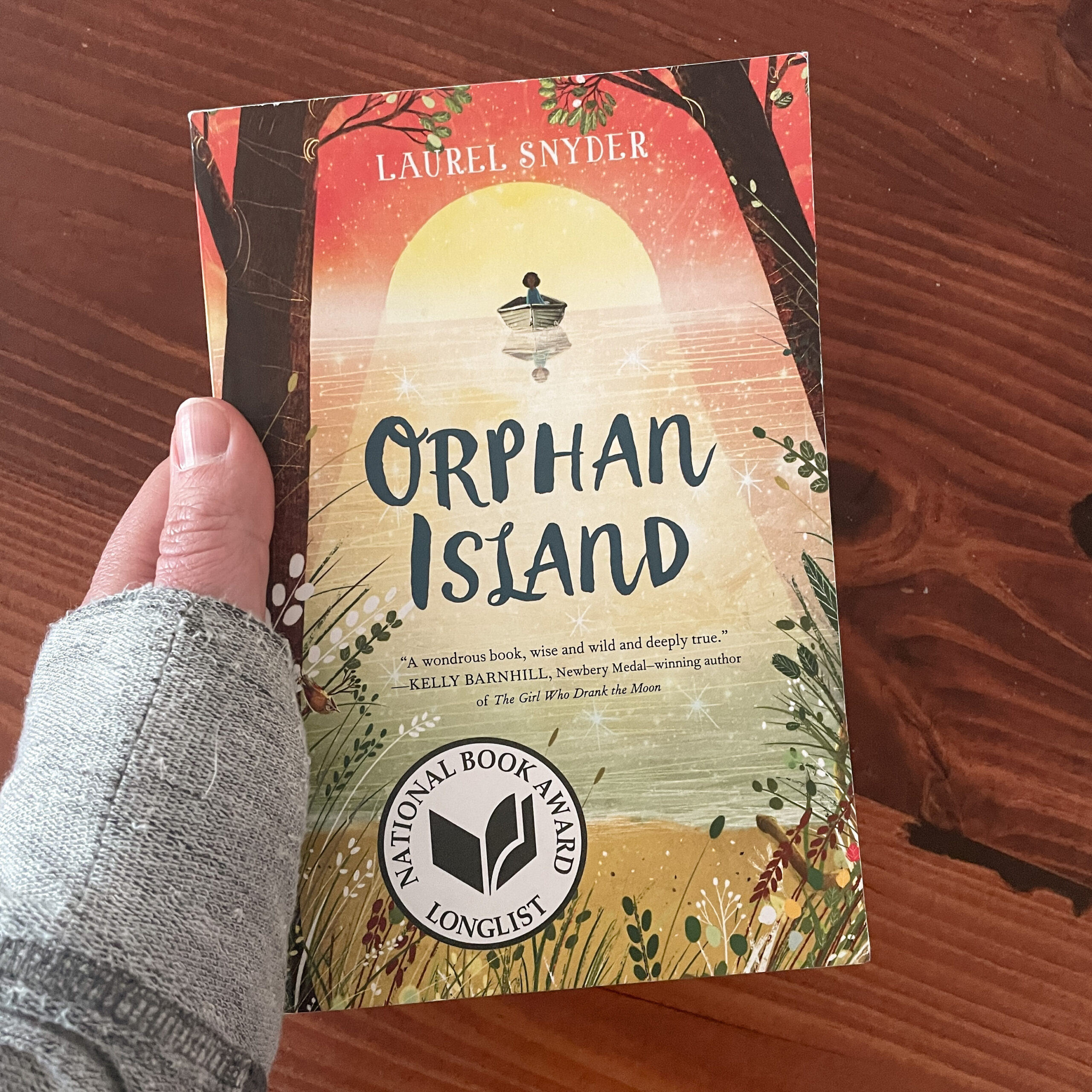When did you read your first serious novels? I remember the latter half of elementary school as a time of discovering dark stories, complex characters, books that grappled with big scary issues. Sometimes this was because I’d raided my parents’ collection of horror and dystopian fiction, but oftentimes not. When my own kiddo reached this age, I realized I’d forgotten how dark children’s literature can be.
I mean, Bridge to Terabithia, anyone?

Orphan Island
I grabbed this from the bookstore as a Christmas gift for my nine-year-old and he read it obsessively. Then he cried because it was over and gave it to me to read. This is how I’ve discovered some truly wonderful middle-grade novels as an adult.
If I’d read ORPHAN ISLAND on my own, I would’ve said, kids won’t get this book. The themes are too adult. But my own child loved it so much he put it down for several days, unwilling to read the last chapter and say goodbye!
The story
The story revolves around Jinny, the oldest of nine children who live on a magical island. Every year, a boat arrives with a very young child — preschool age. The Elder child, by that time twelve or thirteen, gets on the boat in their place and leaves the island forever. So this is Jinny’s Elder year. She has to say goodbye to her best friend, the outgoing Elder, and welcome her Care, aka the little kid from the boat. She will tend to her Care for her final year on the island and teach this child all they need to know to live independently among the nine children.
Throughout the story we see Jinny struggle with grief, both over missing her friend who left and the knowledge she will have to say goodbye to the island she loves. On top of this, she has these new demands on her as the Elder, a surrogate parent figure for the new little. We also learn some of the island’s lore. There are elements of magic and mystery, and it seems like a paradise where the children work hard but can’t get seriously hurt. But there are rules, too — and consequences for breaking them.
My take
ORPHAN ISLAND is one of those books that will leave a lot of things open-ended. I read it as an allegory exploring the nature of childhood, and our complex feelings about leaving that magic behind (and sometimes wanting to cling to it even as we begin to morph into our older selves).
Jinny can be a frustrating character at times. She has to learn some lessons about what it means to love someone, and have the maturity to do the right thing in hard situations. But I think this is really authentic to a tween character. Yes, these kids are sort of wise beyond their years on account of living their lives with no adults around. But still — she’s twelve, and going through the rough transitions we all go through at that age.
I was fine with the open-ended nature of this story, but there a couple of character development things felt unresolved. Because the children came to the island so young, they don’t really have memories of Before. Many had even forgotten their Elders. As a result, their backstories felt like kind of a blank slate. Their personalities were presented at face value, and so the secondary characters — while engaging and important to the story — sometimes felt one-dimensional. We didn’t get any hints as to why they were the way they were. They just…were.
Even so, I found ORPHAN ISLAND to be a thought-provoking page-turner.
⭐️⭐️⭐️⭐️
CWs for kid readers: puberty; injury with risk of death; some adult readers have criticized treatment of gender, possible parallels to existing mythology, esp. Genesis/Eden, but I don’t think this is intentional by the author at all
Links:
- My reviews of this book on Instagram, Goodreads, and Amazon
- Get the book at your local indie bookstore (always my recommendation)
- Amazon affiliate link

Leave a Reply